Giving & Getting More Frequent Feedback
When many of us were undergraduates, the graded work in many our courses consisted of only a midterm and a final, but a course that has only two exams is one in which most students don’t get the practice and feedback necessary for learning. In such courses, students may have no way of knowing whether they are “getting it” until it’s too late, and research shows that students are more likely to resort to cheating in such circumstances. When the final grade comes from only a few exams, or a couple of major assessments of any kind, the stakes are very high for each one. If a student bombs the midterm, they might just give up, drop the class, or even change their major, when, with a different course design, they might have learned, succeeded, and developed a strong identification with the major.
Having only high-stakes exams can also communicate to students that learning means memorizing, simply holding information in one’s memory until it can be purged on an exam, when what we really want is for students to develop knowledge and critical thinking skills together, to learn and to be able to apply what they learn. Having only a midterm and a final can also communicate to students that learning is solitary, done mostly in private by studying alone; that errors are final (rather than opportunities for improvement); or even that the course is important only two days a semester, so it’s not really necessary to attend.
From decades of research in a variety of disciplines, we now know that people need regular feedback to learn most effectively. They need to know whether they are making progress toward the goal, and of course, we instructors need to know that, too. Gathering information about students’ progress helps shape our teaching, and it gives us an opportunity to steer them in the right direction. Before we provide feedback, we can think about what we want students to use that feedback to do next. For example, are we trying to help them analyze problems in a new way? What kind of feedback will help them improve on their next attempt? (And of course, we need to make sure there is a next attempt, so that they have an opportunity to apply the feedback.)
In the book How Learning Works, Ambrose et al. explain that learning happens through a cycle of practice and feedback: students practice, we observe their performance, and they receive our feedback in time to apply it to their next attempt. Thinking through what you want students to use your feedback to do next is as much about course design as it is about communicating effectively with students. Opportunities for practice and feedback don’t have to be big assignments or exams; they can be low-stakes activities and assignments that happen in or out of class.
Early in the semester is a great time to check in on students and give them some feedback because it’s not too late for them to recover if they’ve gone off track, or even if they’re totally lost. If you notice a student has disengaged, or is not turning in work, it’s likely that they are not yet successfully building the foundation the beginning of your course is intended to provide. But they still can! And it’s much better for students to find out now what they are and are not getting, and what they can do to improve, rather than later on a high-stakes exam. In fact, we can design with opportunities to recover in mind by assigning less weight to work that comes early in the course.
If you’d like some support to build low-stakes opportunities for practice and feedback into your course, we would be happy to help! You can email us at pro-teaching@fsu.edu to schedule a consultation. We look forward to working with you!
FALL READING GROUPS
This semester the Center for the Advancement of Teaching is offering the following four faculty reading groups and one reading group for TAs. Each group will meet once a week for three weeks to discuss the books in sections. We hope you can join us! Please register here.
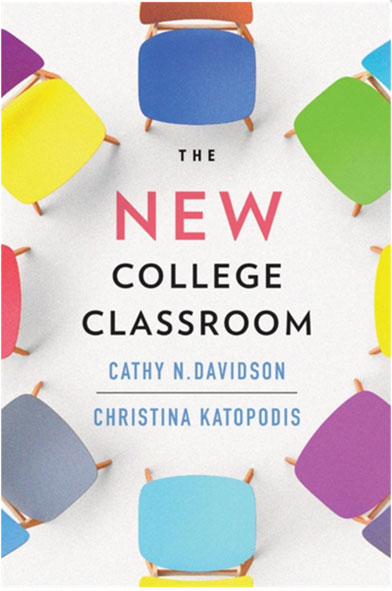
2:00–3:30 p.m. in 432 DIF
Print copy, delivered through interoffice mail
Davidson’s new book is an inspiring and practical guide that helps faculty bring recent research on learning to bear on their own teaching. Participants will generate plans for implementing multiple strategies in their own classrooms to create dynamic learning environments, exciting learning experiences for students, and more gratifying teaching experiences for themselves.
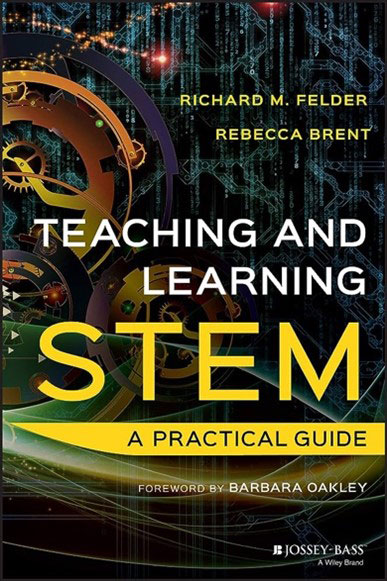
10:00–11:30 a.m. in Dirac Library Conference Room
Print copy, delivered through interoffice mail
Would you like to incorporate more active learning into your STEM course, but are unsure where to start? Richard Felder and Rebecca Brent provide practical, evidence-based strategies for designing and teaching STEM courses to promote student learning and retention. Drawing from decades of research and experience, the authors provide concrete suggestions of evidence-based methods you can implement right away, without major preparation time, brought to life by rich examples from college courses across STEM disciplines and levels.
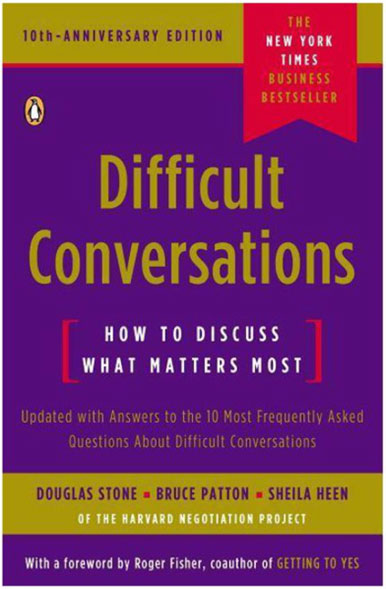
[Closed – This group is full.]Fridays: 9/29, 10/6, 10/13
2:00–3:30 p.m. in DIF 432
Print copy, delivered through interoffice mail
Whether in or out of class, teaching sometimes involves having difficult conversations. We might have one in office hours with a student about a grade, or one in class about a sensitive topic, or even one with a colleague about changes to the curriculum. In this book, authors from the Harvard Negotiation Project share strategies for better understanding the underlying structures of all difficult conversations so that we can have rather than avoid them, stay more grounded during them, and make them as productive as possible.
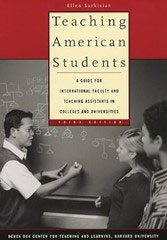
12:00–1:30 p.m. Meeting site: TBD
Electronic materials
Join our reading group for international faculty navigating American higher education. Explore the intricacies of teaching American college students with carefully selected book excerpts and articles. Gain insights into cultural nuances, teaching strategies, and fostering inclusion in the classroom. Share experiences and ideas with a supportive community of educators. Whether you’re a seasoned professor or new to American academia, this group will enhance your teaching skills and connect you with peers. We invite you to join us for an enriching educational journey that empowers you to make a lasting impact on your students.
Click here to explore the book.
Click here to watch the video accompanying the book.
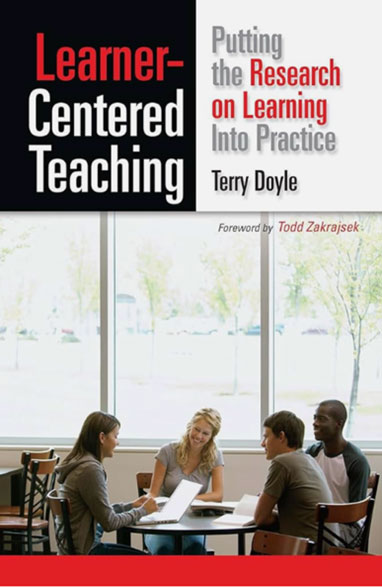
11:00–12:30 p.m. in DIF 432
E-book, available for free through FSU’s libraries
Note: This group is for TAs (graduate students) only.
Recent decades have brought a wealth of research on learning and cognition. These developments are gradually making their way into work on best practices for the college classroom. Doyle’s Learner-Centered Teaching is a practical, comprehensive guide to strategies for making effective use of the research. When we adjust our classroom focus from teaching to learning, we make our own work more gratifying, and we can enhance our students’ learning experience as well as their mastery of material. In this group, graduate teaching assistants will discuss Doyle’s text and specific strategies and activities for enriching our own classrooms.



